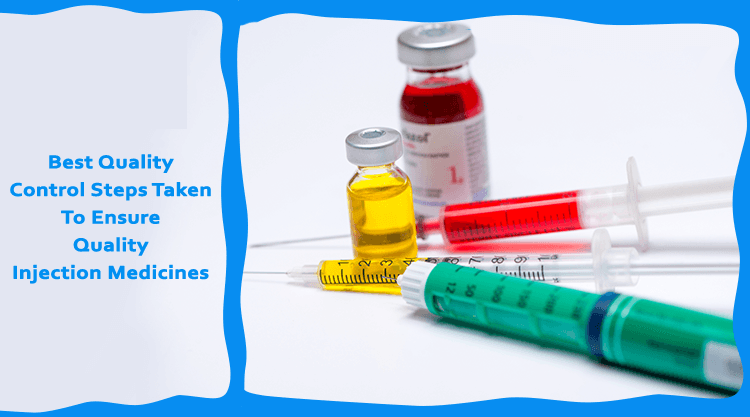- E-mail : info@mlsri.co.uk

The term Quality Control (QC) is a sum of all procedures undertaken to ensure the purity and identity of a pharma product, whether you make a tablet, injection, or healthcare product. The quality control procedures range from a chemical experiment to determine the presence of a particular pharma substance to sophisticated pharmacopoeia monographs.
It is a combination of physical, chemical, and microbiological evaluations or tests. When you run a Pharmaceutical Injection Manufacturers industry, the quality, efficacy, and safety of the product can be monitored by Quality Assurance and Quality Control procedures.
These two processes determine the safety and quality of patient care. They also help in diagnosing and controlling therapy for a patient and providing data for research and public health purposes.
The medicinal products are subject to quality-control testing by the manufacturer, but they may also need to undergo a few more tests that will determine:
The test method in the product specification defines the marketing authorization for the product. It is because the product specs, test methods, and acceptance criteria are assessed by the regulatory agencies of the local government. This assessment is valid and justified.
Pharmaceutical Manufacturers are required to publish the analytical methods and scientific literature and maintain a library of published material. Manufacturers may provide independent laboratories with test methods, reference material, and acceptance criteria. If the pharmacopoeia monograph is absent, then alternative approaches are supposed to obtain as much information is possible about the medicinal quality.
The quality control process is a step-by-step process that is mandatory for every manufacturing unit, regardless of its size and nature of the product it makes.
Also, Read:
Granulation & It’s Importance In Tablet Manufacturing Process
Top 10 Pharma Injection Manufacturers in United Kingdom and Canada
Top 10 Inhaler Manufacturers in United Kingdom and Canada